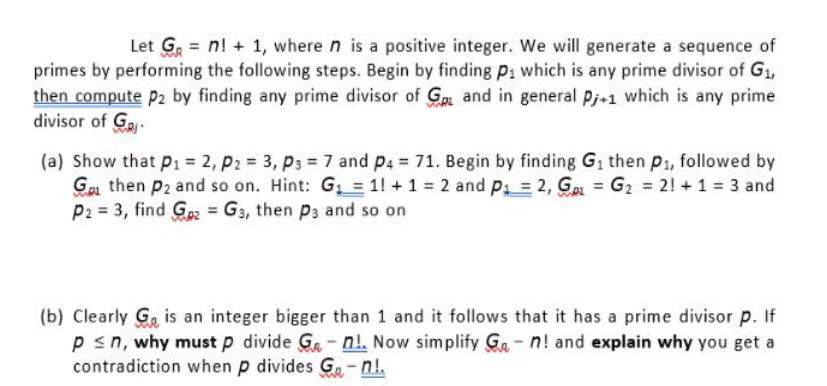Let Go n! + 1, where n is a positive integer. We will generate a sequence of primes by performing the following steps. Begin


Let Go n! + 1, where n is a positive integer. We will generate a sequence of primes by performing the following steps. Begin by finding P which is any prime divisor of G, then compute P2 by finding any prime divisor of G and in general Pj+1 which is any prime divisor of G (a) Show that p = 2, P = 3, P3 = 7 and P4 = 71. Begin by finding G then p, followed by Go then p2 and so on. Hint: G = 1! + 1 = 2 and P2, G = G = 21 + 1 = 3 and P2 = 3, find Gz = G3, then P3 and so on (b) Clearly G is an integer bigger than 1 and it follows that it has a prime divisor p. If p n, why must p divide Gan!. Now simplify G-n! and explain why you get a contradiction when p divides G-n!. (c) From part (b) above, it follows that p > n and if we construct the sequence of primes p1, p2.p3,p4..., as outlined above we get that p1
Step by Step Solution
3.35 Rating (161 Votes )
There are 3 Steps involved in it
Step: 1
a Lets find the values step by step G n 1 G 1 1 2 P1 any prime divisor ...
See step-by-step solutions with expert insights and AI powered tools for academic success
Step: 2

Step: 3

Ace Your Homework with AI
Get the answers you need in no time with our AI-driven, step-by-step assistance
Get Started


